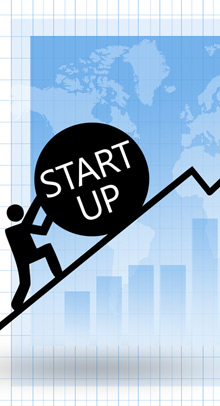Forward Market
Forward market is a market of derivatives (futures, options, forwards, CFD). Derivatives are derivative financial instruments (from Eng. Derivative), it is an agreement which gives a right or an obligation to buy or sell products and financial instruments in future at pre-negotiated price (strike price). These instruments are called derivative because their price depends on the price of underlying asset which the contract is based on. As an underlying asset, not only products and derivatives but also indexes, interest rates and currency rates can be used.
Derivatives have the following characteristics:
- their cost changes following the price change of the underlying asset;
- to purchase them, only small initial outlays are enough comparing to other instruments, which prices likewise react to the changes of market conditions;
- their calculations are carried out in future.
Derivatives goal is either insurance (hedging) against certain financial risks or obtaining profit from trading (speculation) operations.
Futures is a buy-sell contract of underlying asset, signing which the parties (seller and buyer) agree only on the prices level and delivery time. Other asset parameters (quantity, quality, package, labeling, etc.) specified in advance in exchange contract specification. Parties have obligations to the stock exchange for the execution of futures.
Option is a contract according to which a potential buyer or a potential seller of underlying asset gets a right but not an obligation to make a purchase or a sale of this asset at a pre-agreed price at a specified in the contract time in the future or during a certain time span. At the same time the option's seller has an obligation to make a reciprocal buying or selling of the asset in accordance with the conditions of the option sold. There are options for selling (Put Option) and options for buying (Call Options).
Put Option is a contract according to which a buyer gets a right but not an obligation to sell a certain amount of underlying asset to the seller of the option at a fixed price during the option period. The cost of the option is defined by the bonus which the buyer of the option pays to the seller.
Call Option is a contract according to which a buyer gets a right but not an obligation to buy in the future a predetermined amount of underlying asset at a stated in the contract price during a limited time period or waive the purchase. The seller must sell the subject of the auction or financial instrument if the buyer makes this decision. The buyer pays a bonus to the seller for this right.
Forward is a contract according to which a seller takes an obligation during a time period specified in the agreement to transfer underlying asset to the buyer or fulfill an alternative monetary commitment, and the buyer takes an obligation to accept and pay for this underlying asset. In accordance with the conditions of the contract, parties get counter liabilities in the amount which depends on the indicator of underlying asset at the moment of the fulfillment of commitments in order and time or in a period of time defined by the contract. The main difference between forward contract and futures contract is that forward contract is a single exchange seller-buyer transaction whereas futures contract is a recurring offer sold at a stock exchange.
CFD or contract for price difference (Eng. Contract For Difference) is an agreement which is a guaranteed obligation between two parties about transferring to each other a difference between the current price of the underlying asset and the price at the end of the agreement period. Usually the agreement period is not set, and the agreement can be ended with the request of one party that has this right. Nowadays, CFD is mostly used for speculations. For example, shares CFD is a derivative from the stock buying agreement which allows speculation on shares price movement without any necessity for registration of share ownership. CFD was created to satisfy the needs of exchange speculators with little capital. CFD allows significant expansion of the scope of activities of individuals. Usually CFD trading happens with the use of additional credit funds (margin trading).





